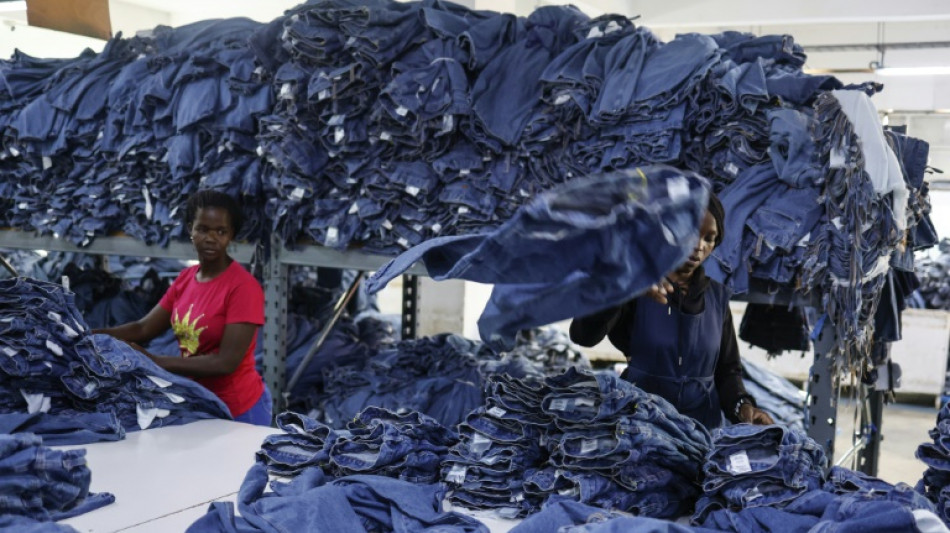

Kenyan jeans factory to fire workers as US deal expires
A Kenyan factory making jeans for US stores will start firing hundreds of workers this week as American lawmakers failed to renew Africa's duty-free access in time, its boss said Friday.
The African Growth and Opportunity Act (AGOA) has been a cornerstone of trade relations for 25 years, allowing the United States to buy billions of dollars of duty-free cars, clothes and other items from select African countries each year.
At meetings in New York this week, African leaders and business representatives were given off-the-record assurances from top Trump administration officials that the AGOA would eventually be renewed, said Pankaj Bedi, CEO of the United Aryan factory in Kenya, which exports Wrangler and Levi's jeans under the deal.
But there is now no chance that will happen before the deal expires on September 30, he told AFP.
"Everybody we met from the US side is in agreement that, yes, AGOA should continue," said Bedi, who helped represent the Kenyan Association of Manufacturers at the talks in New York.
"But still there's no champion... They're all waiting for a sign from the White House, basically."
US President Donald Trump has complained about some wide-ranging free-trade deals and has slapped huge tariffs on many countries.
Washington is also facing a government shutdown as Republicans and Democrats battle over spending plans, leaving little bandwidth for African trade deals.
Bedi said US lawmakers had indicated that the AGOA could still be renewed retroactively in November, perhaps for two years, to allow for a shift towards the bilateral deals preferred by Trump.
Trump's tariffs have already disrupted trade for some African countries.
The small kingdom of Lesotho, another big exporter of clothes to the US, was one of the worst-hit after Washington imposed a 50-percent tariff earlier this year.
Kenya received the lowest tariff of 10 percent.
But with the AGOA expiring, it will also face import duties of 33 percent, likely pushing buyers to cheaper textile producers in Bangladesh or Vietnam.
Bedi said he would have to fire 1,000 of his 10,000 workers, meaning "very serious" consequences for thousands of families.
"The uncertainty is not only with buyers, but with lenders, the banks, and all that," said Bedi.
"Everybody's very nervous."
E.Goossens--JdB



